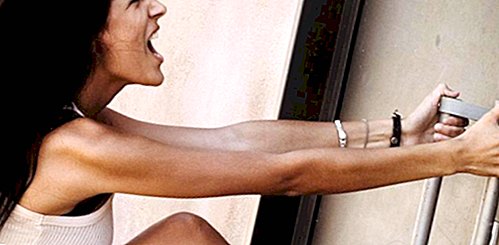Firedooring: Why some people are repeatedly rejected

Firedoor means emergency exit. The special feature of these outputs: they can only be opened from one side. For particularly one-sided relationships, experts therefore speak of "firedooring". Yes, we also think: Since the experts have surpassed the naming once again! The phenomenon (sorry, we just have to rewrite the word because it's so stupid) "Firedooring" is in love affairs, with flirts, but also in friendships. What a tendentially one-sided relationship looks like then varies. But always follows a certain pattern. The one gives. The other one takes. If he's there right now.
Firedooring in friendship
In friendships, most people have probably already experienced it. There are these friends who rarely think of you. If they do it then it is because they are of use to them at this moment. And of course, it helps to be happy. If XY ever says hello, you do not want to disappoint him / her. Woe to him, however, who tries the whole thing the other way around. Because if XY ever goes to the phone, it's just to say that he or she just does not like helping you. Otherwise, of course, always happy. It is clear.
Firedooring while flirting
Even when flirting the same thing over and over again: one is already totally on fire and is happy like Bolle on the next date, the other is extremely indecisive, unreachable or unreliable. "Oh, were we dating today, I have to push that unfortunately ..." And already the hunting instinct of the rejected is awakened again. The feeling of running after one another is completely right. You do that too. Sometimes with success. Often without.
Firedooring in love
Whether it was at the beginning or just developed, even if both decide on a relationship, often wants one more. "What happens then is the classic demand-withdrawal dynamics," explains couple therapist Eric Hegmann. One drums against the "Firedoor", the other does not open. "If that happens in relationships over and over again, it's probably a fearful type of attachment, and for anxious attachment types, the avoidable attachment type fits perfectly into the loot scheme." Too bad that that often makes you very unhappy. At least when the tendency to bind is very extreme.
The anxious and the avoiding type of bond
"About 25% of all people are fearful types of attachment, they tend to have low self-esteem, and they have an attachment to the idea of making love." People of fearful attachment know loss, jealousy and often acknowledge their value on the outside, "says Eric Hegmann. In this figure, he refers to the research of the American psychiatrist and neuroscientist Amir Levine, who has transferred John Bowlby's attachment theory to the dynamics of adults in couple relationships. (Levine, Heller, 2010, Attached)
Different and yet carved from the same wood are people of the avoiding type of attachment. Such people always keep a certain distance in relationships in order not to get hurt. This attachment behavior is also based on a lack of self-esteem. How fitting that again about 25% of humanity belongs to this type, because? Surprise ? anxious types find avoiding types awesome. With their repellent nature, they perfectly confirm the inner beliefs of the timid. And even the avoiding guy has something of a liaison with a frightened guy. After all, they would be very lonely if nobody would follow them.
What can I do?
"If you always find yourself in the role of the rejected, you should first think about whether it's worth it," advises Eric Hegmann. "Often the supposed strength that makes you feel so attracted is not that real." Real strength is not easily recognizable at first glance. "About half of the people have a secure attachment behavior, but they are not that exciting right off the bat, because they offer little drama and excitement."
So you have to find a person with secure attachment to be happy? "You do not have to", calms down Eric Hegmann. "The game between anxious bond type and avoiding bond type can work very well if the momentum does not get too extreme." But what is important to him is: "No one should suffer in a relationship or friendship, and if that is the case, seek help," says the therapist. "There are always ways to be happy together, at least when both really want it."










